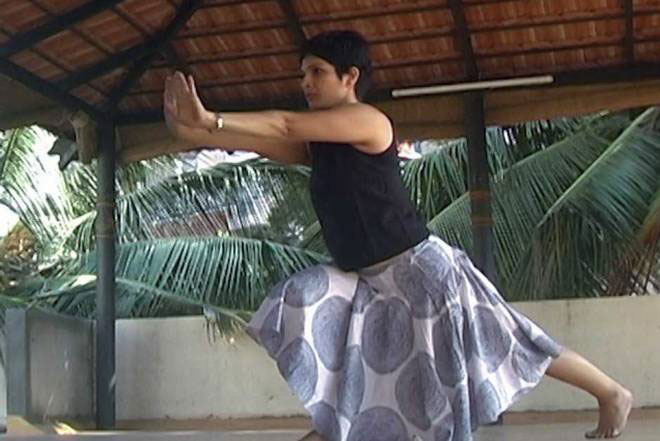Who's a good girl ? The Hindu, Metro Plus.
- Nanasu
- In the news

event Padmalatha Ravi’s documentary, Good Girls Don’t Dance, took a look at society’s perceptions of its women
We all trooped into the little makeshift hall in Jaaga on a Sunday afternoon, on K.H. Road to see Padmalatha Ravi’s documentary, Good Girls Don’t Dance. A Bangalore-based journalist and a documentary filmmaker, Padmalatha said her 15-minute film questions the notions that shape society’s reaction to molestation and rape.
“It’s not a solution to the problems of eve-teasing, violence, and rape in our country, but I wanted to watch my subjects’ reactions and you, my audience, give your opinions. It is an effort to understand why the girl is blamed when she is molested, sexually harassed, or raped,” she said.
The film began with subjects revealing what each person thought a ‘good girl’ was. Many said – good girls are traditional, docile, listen to her parents, should be smart and someone who adheres to written rules, one who conforms. A good girl laughs in a ladylike way, speaks in a gentle tone, dresses in a traditional way – in short, someone quite boring. These were views offered by both young and old, male and female, mums with daughters, and women with families, sitting alongside them as they spoke.
Interestingly, a ‘bad girl’ was considered the back-benchers in class, those who smoked and who had multiple boyfriends and partners. Thoughts quite clearly enunciated by some college boys.
She fails to achieve, wears short skirts, and by that, provokes men and boys. In fact, one girl said, those girls who left a lot of their body exposed were considered sluts. But others said it was up to a woman to wear what she is comfortable with and not fidget with it when she does. A dancer named Shabari tied the different parts of the film together with her flexible and agile movements. This, Padmalatha explained, was done because she thought her viewers would get bored just listening to speaking voices.
The audience took over after the screening and asked Padmalatha, “How easy was it to get people to speak?” She said she was surprised, but once they began to talk, a lot of views just flowed out easily. In fact, she says she has enough footage to make another film or two.
Godhuli Chaudhuri from the Royal College of Art, London said, she was afraid to smile at strangers in case it is misinterpreted in Bangalore. In fact, she took a while to get used to the level of intimidation she experiences in buses, from male co-passengers. Susheela Nair a freelance media person felt that only with strong deterrents by the government can we hope to get some level of control and a feeling of security. Mark Austen, visiting faculty at IIJNM said that men here still had a Medieval mindset, which needed to change.
Making the film surprised Padmalatha at the number of people who mentioned clothes as an important point. No one mentioned that rape is a method to control a woman’s sexuality and the fact that we are a deeply hierarchical society with patriarchal ‘respect’ lines, she added. Going forward Padmalatha hoped that she would be able to wear whatever she wanted to, whenever she wanted to and not have to ask her husband to pick her up when it grew late.







